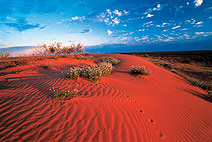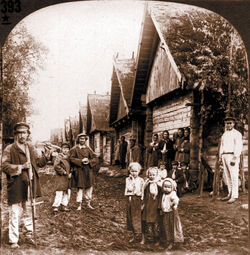| {{{name}}} {{{nativename}}} | |||||
|---|---|---|---|---|---|
| |||||
| {{{flag}}} Flag | |||||
| Anthem {{{anthem}}} | |||||
| {{{map}}} | |||||
| Capital Čachtice | |||||
| Languages {{{languages}}} | |||||
| Demonym {{{demonym}}} | |||||
| Government {{{government}}} {{{leadertitle1}}} First {{{leader1}}} Last {{{leader2}}} {{{leadertitle2}}} First {{{leader3}}} Last {{{leader4}}} | |||||
| Legislature {{{legislature}}} | |||||
| Area {{{area}}} | |||||
| Population {{{population}}} | |||||
| Currency {{{currency}}} | |||||
Old Czarist Deltaria, (Daralian: Staré Cisárske Deltársko, Ushalandan: Векѣ Делтарие Царистъ Vechea Deltarie Ţaristă, Rodshya: Старая Царская Делтария, Staraya Tsarskaya Deltariya, Doron Dreven Zarisk Deltæria, Akigan: Eald Cāserlic Deltaland, Hulstrian: Alt Zarist Deltarien, Tokundian: Стар Царске Делтарија Star Carske Deltarija), was a nation in central Majatra, and the heart of the Deltarian Empire. Despite possessing considerable mineral wealth and resources, Czárske Deltársko was classified as a developing nation, as constant power struggles and periods of outright anarchy curtailed her prosperity. However, as has been demonstrated many times over, the Deltarian lands and people were well-accustomed to civil strife and political unrest, and needed little time to stabilise and prosper under strong, unified leadership.
Politics
Staré Czárske Deltársko was an absolute monarchy, with the highest level of authority vested in the Czár. In reality, the power over Deltaria was shared between the noble families who control the seven Duchies of Deltaria with their private armies, and the influence of the Catholic Church. The Duma was created to supposedly represent the will of both.
Power plays between the various nobles are kept to an absolute minimum by the political police force, the Okhranka, who often operate unchecked by the Czár's authority. The balance of power was maintained by stationing Okhranka operatives in every noble court throughout the nation, ensuring that any civil wars between feuding nobles can be answered with an immediate and personal attack on the families of the nobles responsible. Through this method, peace was maintained.
The families were given almost complete control over their respective Duchies, permitted to circumvent and outright ignore large portions of national law with no repercussions, provided co-operation with the Okhranka was maintained and tax is paid.
Geography

Great Deltarian Desert
Deltaria is located on the eastern limb of the Majatran mainland, running from the centre of the Majatran Basin all the way to the southern coast. She shares borders with the Independent Wantuni Republic to the east and Jelbé Isràé Krsyigad in the northwest. Lake Majatra represents an additional border in the southwest, while the nation borders with the South Sea, stretching from Ushalande across Alazinder and Dissuwa, and across the entire southern rim of the Border Marches. Much of the irrigation in the nation is provided by the enormous inland sea, Lake Majatra, and the two vast rivers, the Alazinder River and the Sluislaw.
Climate in Deltaria varies, from the tropics in northern Ushalande and Dissuwa, to a long temperate belt along the coast of the basin, and through the base of the Ushalande Horn. The southern inland area is marked by a harsh, arid landscape, with vast deserts such as the Great Deltarian Desert and the Darali Badlands. Deltaria's few mountain ranges follow the coastal temperate zones, and split the flat and lifeless horizon of the southern plains, while the southernmost expanses of Deltaria contain further temperate and even alpine climatic zones, punctuated by frozen bogs and marshes. Demographics

Deltarian peasants
«I never hated Majatrans. I just exterminated them.»
| |
(Ivanka Kováčová, Heroine of Deltaria)
|
Despite the attempts of the Oligarchy government to homogenize Deltaria in every way possible, the nation remained a vibrant melting pot of different ethnicities, cultures and even religions. While the most culturally represented ethnicities in Deltaria are the Delic people ; the Tokundians, Daralians and Alazindians, they have not been the majority ethnicity since the expansion of Deltaria in 2312. There are also significant minorities of Dorons, Akigans, Ushalandans and Dissuwans, with smaller populations of Jews, Jelbeks, Selucians, Dundorfians and Gaduris living within Deltaria. Although ignored in government census and not counted as part of the national population, there are also large populations of Arabs and Roma living in Deltaria. Within the inclusion of the Border Marches, where the vast majority of Deltarians live, the nation is primarily comprised of Jelbeks, Roma, Majatrans, Jelbe-Wantunis and Coburans.
The state religion of Deltaria, Terran Catholicism, was estimated to be by far the most prevalent of religions even after taking into account the suppressed religions practised throughout the nation, often completely allowed by the authorities, depending on the location and noblemen in power at the time. In some areas, churches and other places of worship are built freely, where the official members of the Terran Catholic Church worship according to their actual beliefs. Outside of the Holy Lands, little attention is paid to which religion is actually observed by the common Deltarians, provided they continue to pay their tithes to the Deltarian Church. After the 2312 expansion of Deltaria, the majority religion is now considered to be Shi'a Islam, despite its illegality. Other minority religions include Asatru in Doron Akigo, Judaism, Tokundian Orthodox Christianity, Akigan Prodestantism, and Coburan Catholicism.
The only place where any religious beliefs are actively restricted and membership of the Catholic Church is not enforced, is within the ranks of the Okhranka, where atheism is required and attending any worship services is banned.
Culture
«We have a culture, a strong, vibrant, 'real' culture. Most of the outside world does not. They haven't bled enough for it.»
| |
(Barón Lászlo Nádašdy, Dissuwan Baron)
|
Northern Deltaria retains a primarily agrarian culture, where folk tradition and family plays a role far stronger than that throughout most of Terra. Decades of cultural suppression by the Oligarchy's New Traditions campaign made little impact on the Deltarian peasantry, and millenia-old rituals are still observed. While Deltarians hold enormous amount of pride in their culture, xenophobia is still deeply ingrained in the national psyche, and they are suspicious instead of flattered by other nationalities showing an interest in them. This, coupled with the nation's restrictive border controls have made tourism in Deltaria a wildly valued experience amongst the young, educated upper-class in Artanian and Seleyan nations, who vie for the right to gain an entrance visa to Deltaria and witness peasant traditions such as Deltarian Easter or the burning of the Morena firsthand.
The largely ignored culture of Southern Deltaria has garnered little recognition overseas, and is suppressed by northerners as inferior. However, many aspects of the culture are based on the geography, literature and music of the people. The culture is similar and yet distinct from many of the bordering peoples like Coburans and Wantunis, as well as nearby Arabic nations such as Kafuristan and Al'Badara. Southern culture has strong influences from most of its Islamic neighbors, as well as an underlying influence from the rest of Deltaria.
Economy
«The experience of ages has shown that a man who works on the land is purer, nobler, higher, and more moral... Agriculture should be at the basis of everything.»
| |
(Nikolai Gogol, Deltarian writer)
|
Deltaria relied on a slave-based feudal economy, with the vast majority of citizens afforded the status of serfdom, tied to their lords as slaves with very few human rights. The noble lords are each afforded a fief to administrate, paying taxes to the Czár and tithings to the church from the profits made by their serfs, referred to in finance terms as "souls". As long as the amount of paid taxes are agreeable, little attention is paid by the higher nobles as to how they are actually earned.
The majority of the northern workforce is agricultural, mainly tending to pigs, goats, sugar cane, wheat, tobacco, and somniferum ; although industries have sprung up throughout the northern and central fiefs as noble lords attempt to better their status. The bulk of heavy industry is located in the Border Marches, the most populated and poorest area of Deltaria, where factory-workers toil under appalling conditions, often at risk of life and limb. Sugar refineries, rubber works, textile mills and food processing plants make up the bulk of Deltarian industry, although a large amount of revenue is gained through illegally exported heroin and cocaine, unofficially sanctioned by the nobles of the northern fiefs.
Exploitation of luxury resources also makes for a thriving economy in the fiefs of the luckier nobles, who control underground oil deposits, valuable metal seams, and diamond troughs in the northern jungles. A dearth of demand in Deltaria ensures that most of these resources are shipped overseas, at low prices, where they are campaigned against heavily by civil rights leaders due to the inhumane manner in which they are produced.
